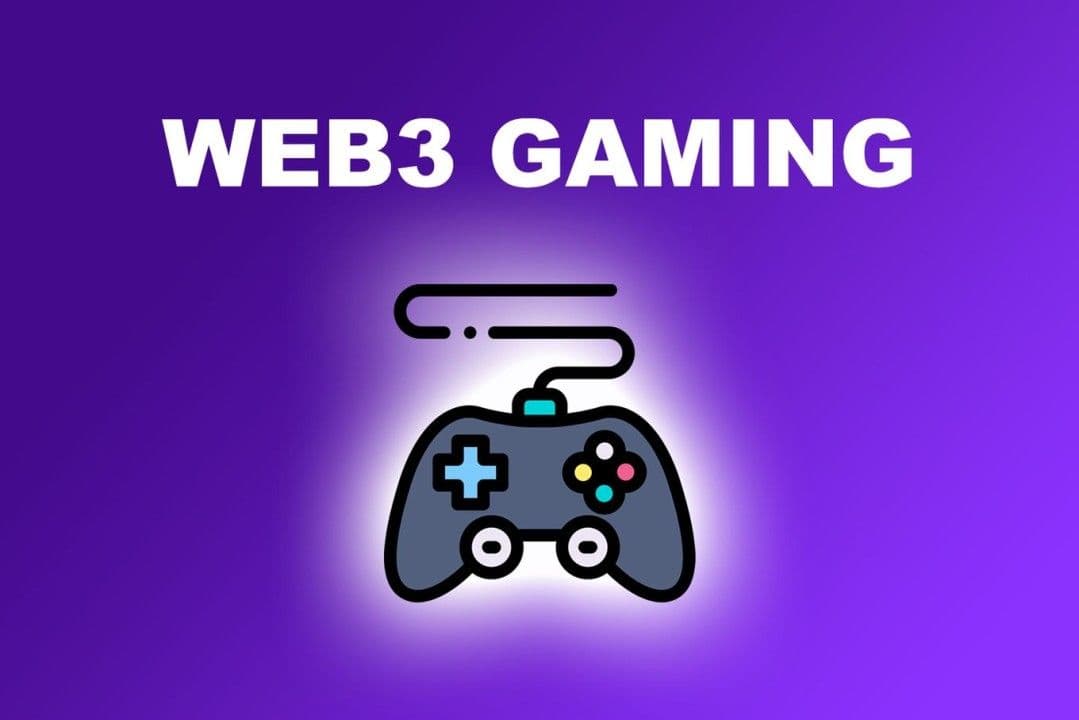
The Challenges of Multi-Chain Strategies in Web3 Gaming
Explore the complexities and risks of multi-chain strategies in web3 gaming. Learn how full-stack solutions like Immutable offer streamlined alternatives for developers and players.
In the rapidly evolving landscape of web3 gaming, the adoption of multi-chain strategies has emerged as a double-edged sword. While promising expanded functionality and interoperability, these strategies also introduce a plethora of pitfalls that can compromise both developer efforts and player experiences.
From increased complexity and user friction to the looming threat of security breaches, the risks associated with multi-chain approaches are substantial. As the industry grapples with the balance between innovation and risk mitigation, understanding and navigating these pitfalls becomes paramount for developers seeking to thrive in the web3 gaming arena.
In this article, we will explore the complexities and risks of multi-chain strategies in web3 gaming. You will learn also how full-stack solutions like Immutable offer streamlined alternatives for developers and players.

Key Points
- A multi-chain strategy (aka cross-chain) exposes games to unnecessary complexity, user friction, the potential for security exploits, and performance or compatibility issues.
- Game developers should limit the number of bridges they are exposed to reduce complexity, optimize player experience, and avoid unnecessary risk. Over $2 billion was lost in 2022 due to crypto-bridge hacks. Four out of the top five largest cryptocurrency security exploits in history have been carried out on bridge-based protocols.
- By embracing full-stack solutions that minimize the number of bridge exposure points like Immutable, game developers can prioritize the player's experience and deliver a seamless, engaging, and enjoyable gaming environment that fosters the growth of the web3 gaming industry without compromising security.
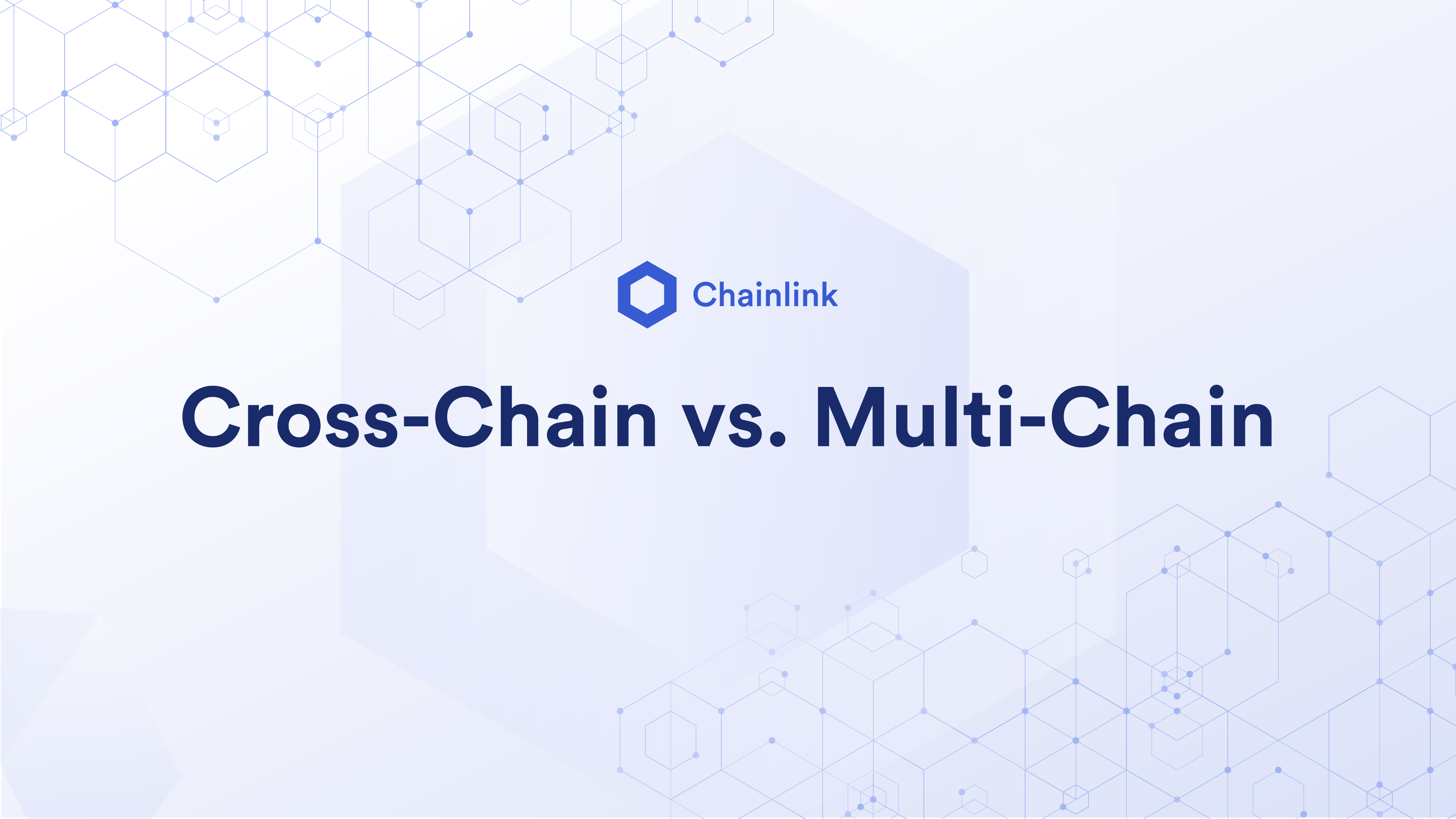
Enhanced Gameplay
In the rapidly evolving landscape of web3 gaming, studios and developers are constantly seeking ways to enhance gameplay and leverage decentralized technology. A strategy garnering increasing attention is the adoption of a multi-chain or cross-chain approach.
Rather than anchoring a web3 game to a specific blockchain, this strategy involves deploying the game across multiple chains, accommodating players on their preferred chain. However, while multi-chain strategies offer potential benefits, they can also introduce complexity and friction for players, potentially compromising the gaming experience and overall business performance.
Additional layers of complexity may hamper performance, compatibility, and security, especially with the inclusion of multiple bridges in the ecosystem. The risks are evident, highlighted by the significant losses exceeding $2 billion due to crypto bridge hacks in 2022.
Furthermore, there is a discernible shift towards single-chain solutions, with Game7 data showing that over 90% of web3 game migrations occur within a single blockchain, rather than expanding across multiple chains. Notably, migrations from one chain to another increased from 12 in 2021 to 65 in 2023, with Polygon and Immutable attracting the majority of game migrations.

Multi-chain Approach
A multi-chain strategy can potentially detract from the overall player experience. Immutable, a leading figure in the realm of web3 gaming, has firsthand knowledge of the drawbacks associated with such an approach.
A prime example occurred in 2019 with Immutable's (IMX) popular web3 p2e game Gods Unchained. Players who possessed a CryptoKitty on Ethereum's L1 network could claim a cat cosmetic (NFT) within the crypto game, Gods Unchained. While appreciated by crypto-savvy players, this feature introduced confusion and friction for the broader gaming community unfamiliar with multi-chain dynamics.
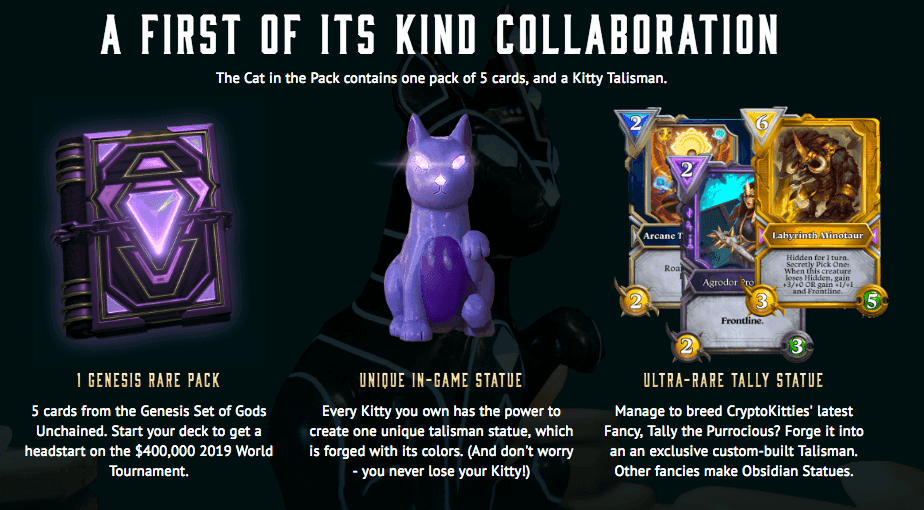
For players, a seamless and uncomplicated gaming experience is paramount, allowing them to utilize their assets across various games and platforms without encountering technical hurdles or compromising asset security.
However, the adoption of a multi-chain strategy often necessitates dealing with multiple chain-specific wallet requirements, token standards, and diverse methods for acquiring or trading in-game assets. Consequently, this fragmentation creates friction, imposes a steep learning curve for both returning and new players, and constrains their ability to fully engage in and enjoy gameplay.
Technical Limitations
Multi-chain game strategies not only pose challenges for players but also present technical limitations and increased costs and risks for game developers. One significant drawback lies in the intricate process of bridging between different blockchain networks.
While bridges remain a vital component of the blockchain scaling ecosystem, it's imperative for developers to carefully consider the number of bridges their game is exposed to. Dependency on external solutions may entail reducing non-fungible tokens (NFTs) to wrapped tokens, thereby compromising their unique properties.
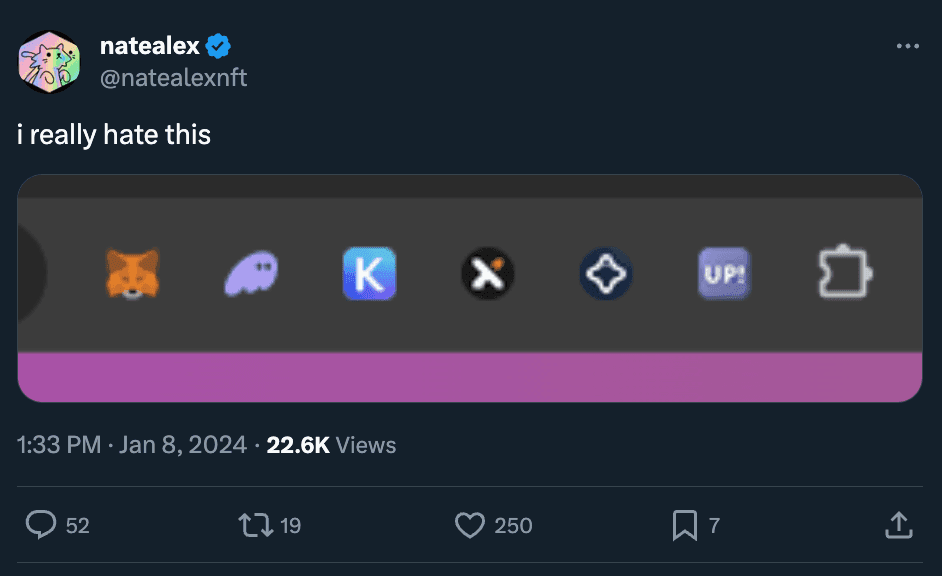
Conversely, developing and securing an in-house bridge solution across multiple chains presents its own set of challenges, particularly concerning on-chain metadata, composability, and wallet integrations, especially with non-EVM-compatible chains.
Furthermore, the maintenance costs associated with each additional chain are considerable, necessitating the hiring of additional blockchain developers, who are often in high demand. These costs are unlikely to be fully offset by on-chain earnings, such as royalties, incentives, or developer grants, which only cover a portion of the added expenses incurred by incorporating extra chains.
Risks and Vulnerabilities
Linking multiple chains through bridge providers introduces foreign code into your ecosystem, expanding the potential attack surface and heightening the risk of vulnerabilities such as hacks and exploits. Bridging tokens across various chains via multiple bridges can lead to functional loss and compromise the integrity of in-game assets. Essentially, the security of your game is contingent upon the reliability of bridge providers, meaning your game's resilience is only as strong as its weakest bridge.
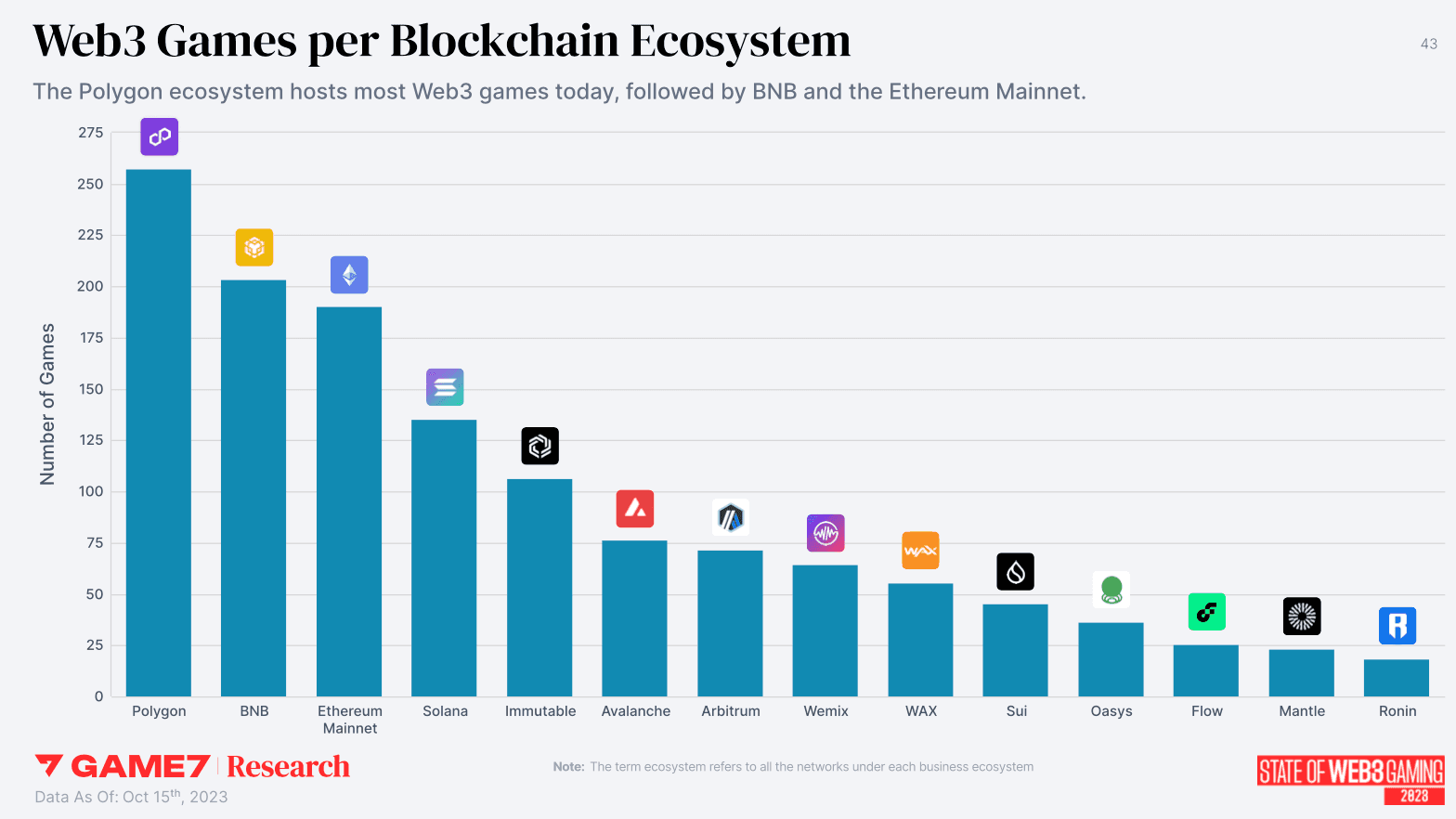
Managing bridges across multiple chains also entails overseeing multiple code bases. Each update necessitates a code review task for your development team, potentially causing delays in implementing critical patches and incurring unforeseen costs. Moreover, even in the absence of a bridge hack, securing funds across multiple bridges presents an administrative challenge. Navigating liquidity hurdles to keep these bridges operational can become an intricate and time-consuming process.
Liquidity and Community
Multi-chain strategies also result in fragmented communities and limited liquidity, posing another significant challenge. As each blockchain operates independently, its respective players and assets remain isolated within their own ecosystem.
Consequently, the potential for a dynamic and interconnected gaming network effect is stifled. Each chain essentially functions as a liquidity silo, segregating buyers and sellers within a collection. This fragmentation undermines the potential network effect achievable within a single ecosystem, ultimately hampering liquidity and composability.
Role of Immutable?
When evaluating multi-chain strategies, it's essential to understand that the choice isn't merely between Immutable and other chains—it's about opting for a comprehensive full-stack solution like Immutable or embarking on the arduous task of building a DIY web3 stack for each chain, each with its peculiarities, diverse vendors, and potentially different smart contract languages. The industry is increasingly aligning towards unified and streamlined web3 gaming ecosystems, and Immutable embodies this approach.
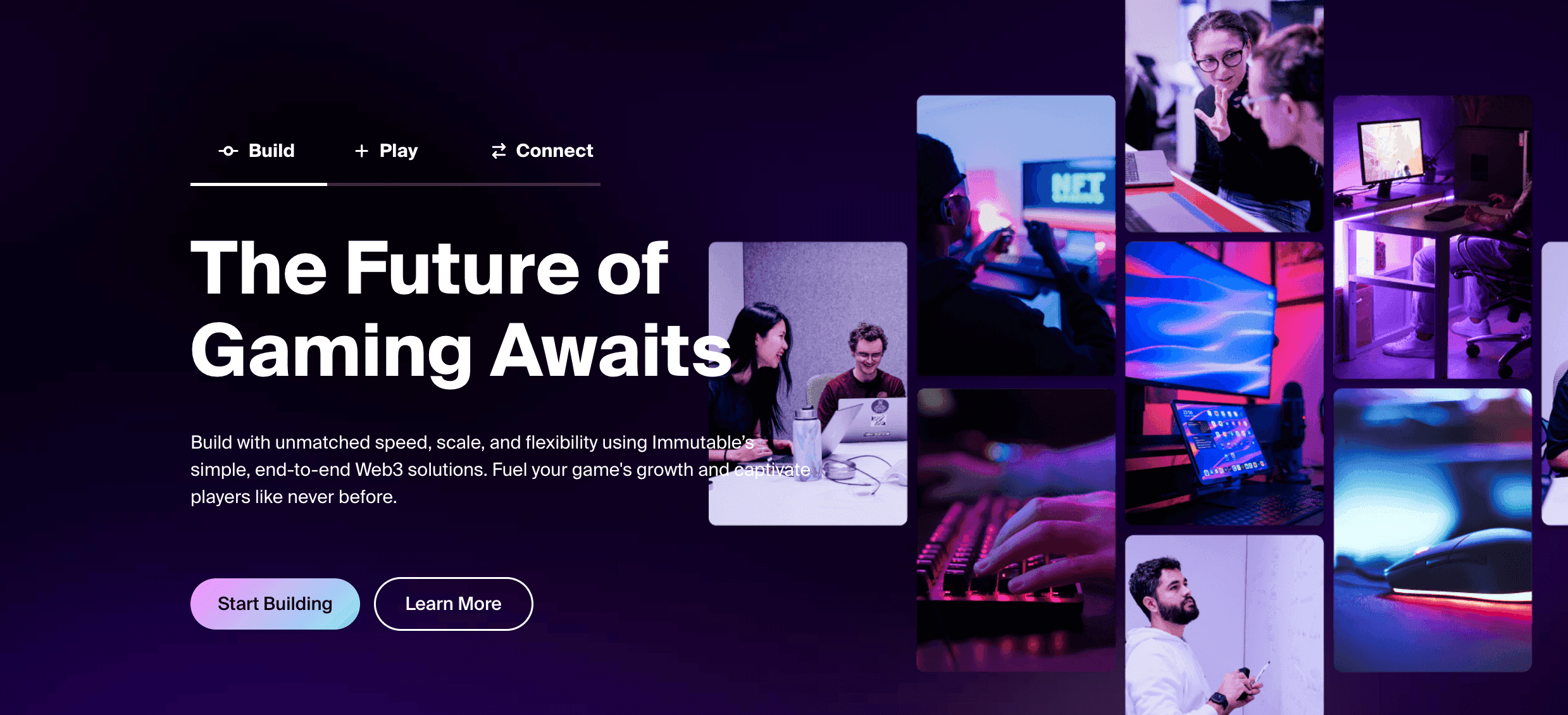
Immutable offers a streamlined and cost-effective solution that empowers studios to concentrate their budget and resources on refining core gameplay, thereby reducing upfront and long-term expenses. By centralizing operations onto a single unified platform and ecosystem, full-stack solutions like Immutable prioritize player experience while eliminating the unnecessary complexities associated with multi-chain strategies.
Immutable also provides a secure, user-friendly, and scalable gaming environment where players can revel in true asset ownership, seamless interoperability, and a thriving gaming community. Their mission is to introduce mainstream gamers to crypto by facilitating effortless transactions and ensuring genuine asset ownership. Through a tightly integrated platform, Immutable offers millions of gamers their initial encounter with crypto, placing a premium on security, user experience (UX), and scalability.
This article was inspired by an original blog post, you can read the original write-up here for more information.
About the author
Eliza Crichton-Stuart
Head of Operations
Updated:
March 25th 2024
Posted:
March 25th 2024






